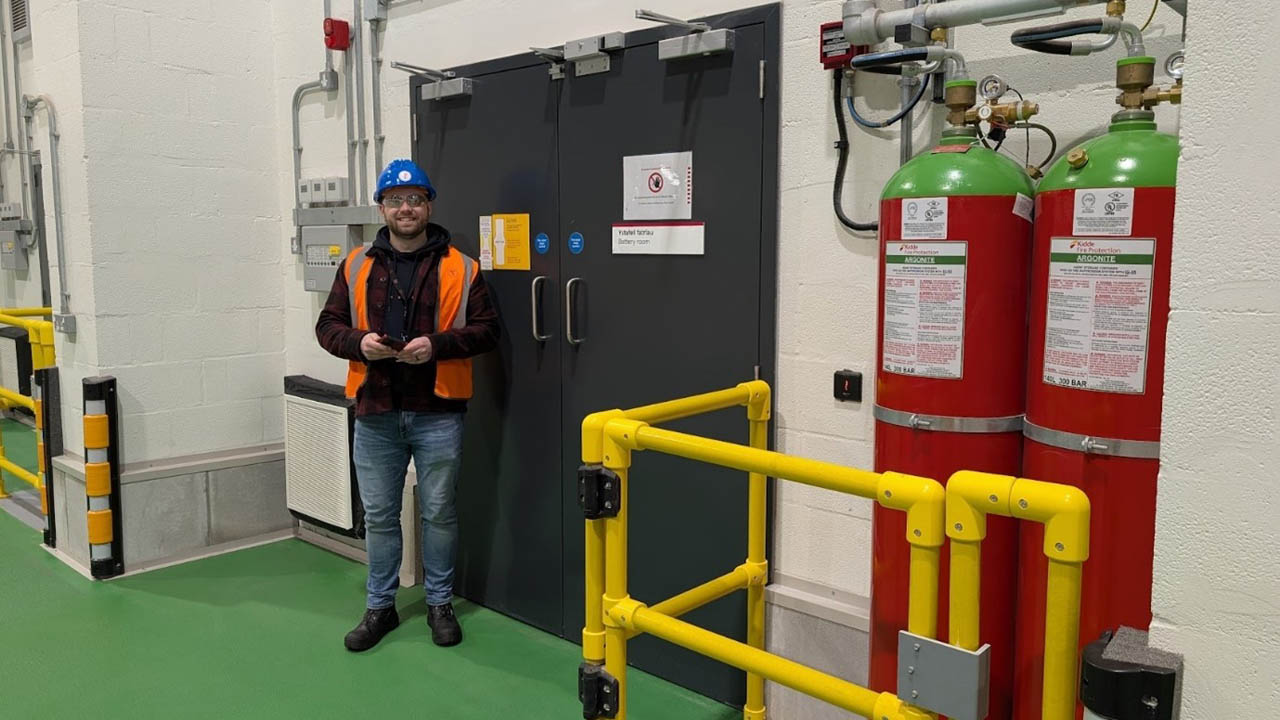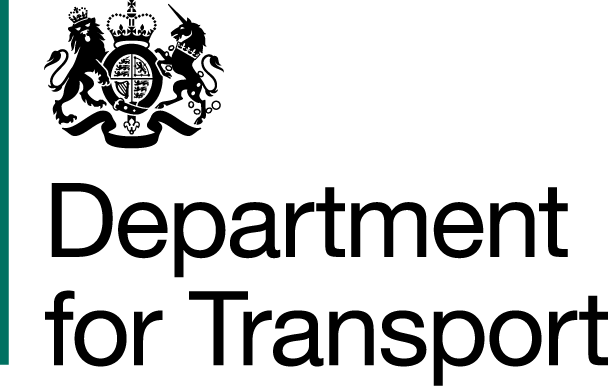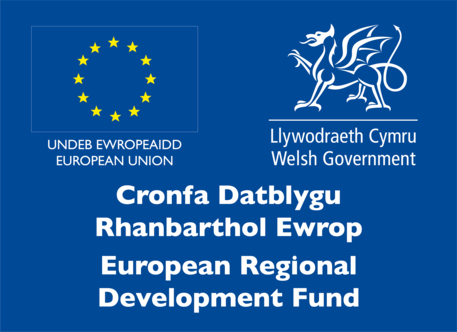Railway 200 and British Science Week: Wales and borders Environmental Management
For this year’s British Science Week, our Environmental Team at Transport for Wales shares more about the work they do to support our railway, operations and wider transport network, and also how they got into their respective roles and careers.
This year's British Science Week theme of 'Change and Adapt' resonates with us in the Environmental Team at Transport for Wales.
Railways have always been catalysts for change, from the first steam engines that helped to power the Industrial Revolution, to today's modern electric and battery powered trains - the railway has continued to adapt to meet society's needs ever changing needs.
Climate change is no longer a distant threat, it's here and affecting us all. The railway industry has a significant role to play in this global challenge and by adapting our operations at TfW. We're ensuring that we're not only complying with environmental regulations but also creating a healthier, greener environment that safeguards clean air and embeds the sustainable practices that are essential for the well-being of future generations.
Although traveling by train is one of the most environmentally friendly ways of moving around, producing significantly lower carbon emissions than other modes of transport, there is always more to be done in the pursuit of continuous environmental improvement! An example of a way in which the Environmental Compliance Team have embraced change includes voluntarily participating in RSSB's Air Quality Monitoring Network. Several of our stations are a part this monitoring network which uses diffusion tubes to monitor levels of NO2 in the air.
We're now taking this one step further and are in the process of purchasing live air quality monitors for these stations to help us identify what could be adversely contributing to air quality and in turn, steer us in the right direction when we’re considering what mitigation and control measures to put in place to help combat this.
As a team, our responsibilities include:
- Managing TfW's EMS: this covers 250+ sites across Wales and the English Border to ensure it meets Green Dragon Level 5 Environmental Standard requirements whist also driving continual environmental improvement.
- Regulatory compliance: keeping up to date with applicable environmental laws, regulations and guidelines to ensure that TfW's operations are compliant in both Wales and England and developing/updating environmental policies and procedures as required.
- Conducting environmental audits: visiting TfW sites to conduct routine environmental audits to verify the effectiveness of our environmental policies, procedures and the various mitigation and control measures we have in place.
- Mitigation planning: developing and implementing various measures aimed at lessening/preventing environmental harm e.g. strategies to reduce noise, improve air quality and manage waste more effectively.
- Environmental performance tracking: monitoring key environmental performance indicators with the goal of finding ways to continually improve TfW’s environmental performance.
- Internal communication: we collaborate with various TfW departments (depots, railway stations, bus stations etc.) to ensure environmental considerations are integrated into everyday activities as well as providing guidance for colleagues to ensure they understand applicable environmental regulations as well as their responsibilities under TfW's EMS.
The Environmental Team at TfW is made up of an Environmental Compliance Manager, Environmental Compliance Coordinator and an Environmental Health Advisor

Sophie Duggan - Environmental Compliance Manager
“I've always been interested in the natural world, particularly the forces that shape our planet such as earthquakes and volcanos. This led me to study and achieve a BSc in Geology and Physical Geography where I particularly enjoyed the modules on contaminated land and management of environmental hazards. The path to my current role aligns well with this year's theme of 'Change and Adapt' as although I had an environmental-focused degree, there were very few roles available at the time for recent graduates. This led to me applying for as a Customer Service Advisor on a temporary 6-month contract for Arriva Trains Wales in 2014 whilst I continued to look for jobs in the environmental sector. I had a few different roles within Arriva (and then Transport for Wales) until in 2019, when I became involved assisting with an external environmental audit where TfW hoped to transition from ISO14001 to the Green Dragon Environmental Standard and now 6 years on, I am the Environmental Compliance Manager for TfW! Whilst this may have been an unconventional path, the knowledge I gained and contacts I made along the way continue to be pivotal in helping me carry out my responsibilities today.
My proudest achievement so far has been bringing all of TfW’s railway stations into the EMS and gaining Level 5 Green Dragon accreditation for them which is a first for the stations on our network. This means we now have a more complete picture of TfW’s overall environmental impact whereas previously only our train maintenance depots and head office were integrated. Stations (especially having almost 250 of them) bring their own unique challenges such as energy usage, water consumption and waste generation and these are just as important as our depot operations when it comes to improving TfW’s environmental performance!”

Kieran Cloake - Environmental Health Advisor
“I have had a keen interest in the environment and its ecosystems throughout my childhood. This led me to studying biology at university and taking up volunteering for reptile surveys in my local area. Before I entered the world of environmental compliance, I started as an R&D scientist for a medical device company, then moved into medical device compliance as a quality engineer. During this time, I had an opportunity to help with environmental compliance management, like environmental workplace inspections and waste management. This led to me completing my IEMA Environmental management course and joining Transport for Wales as my first official environmental role.
I have now been working for Transport for Wales for just over a year. With my day-to-day duties being a key contact for waste management, conducting internal audits, investigating environmental incidents, and monitoring air quality around our sites.
Since I started this role, I have worked with the team to implement an enhanced environmental investigation log to include a more environmental risk approach for how the business operations impact the environment. This is important because it has improved our KPI tracking for environmental incidents and allows us to pick out trends that have the greatest risk to the environment and implement changes to help mitigate these risks.”

Sam Baran - Environmental Compliance Coordinator
“As an Environmental Compliance Coordinator, I am responsible for supporting the Team in ensuring that our transportation systems not only meet but exceed environmental standards. This involves collecting and presenting evidence as part of our EMS, ensuring compliance with Environmental Legislation and Company policies, and identifying areas of Environmental Improvement.
I studied Geography Undergraduate and a Human Geography Masters at Aberystwyth University and have worked in the Environmental Sector for the last 4 years. I have recently attained the Certificate in Environmental management and am working towards full Practitioner membership with IEMA. I am also scheduled to attend the Internal Auditor training in April accredited by IEMA. Working in the sector it is important to have good technical skills such as Analytical, problem-solving skills and an ability to understand several different regulations, policies and legislation, as well as personal skills such as communication, organisation and adaptability.
In a rail context, Environmental Management is vital to ensuring continued, effective performance and in helping to shape the world for the better. Environmental management involves implementing strategies and new, greener technologies to reduce emissions, ensure Sustainable resource efficiency for generations to come and to enhance biodiversity and the natural world. This has resulted in plans to implement more sustainable methods to power the network such as Lithium-ion batteries to power trains, Electrification of the rail system and Hydrogen bus systems. Environmental management is not only associated with the physical world but by also providing social value in the work that we do. In an everchanging world in the face of climate change, with more extreme weather, resource scarcities and increasing inequalities, it is vital to find more methods to adapt to benefit both people and the planet for generations to come. That is why I feel that my role it is not only important in ensuring compliance, but also in helping to identify areas of continued environmental and social improvement.”



